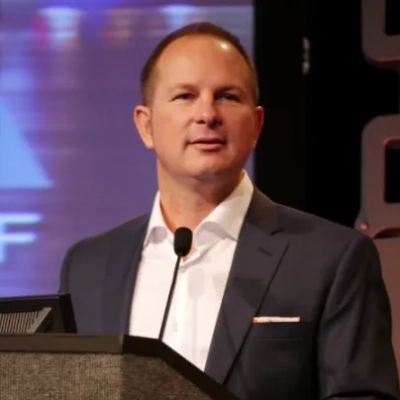What Wisdom Has Shaped Your Approach to Investing?
Ever wondered what drives the minds of top investment professionals? In this Q&A, Chief Finance Officers and Founders share invaluable wisdom that has shaped their investing strategies. From 'Invest in What You Understand' to 'Best Deals Are Ones Not Made,' these fourteen insights offer a comprehensive guide to smarter investing. Get ready to explore the expert advice that could transform your financial decisions.
- Invest in What You Understand
- Importance of Due Diligence
- Calculate Exit Strategies Early
- Focus on Risk Management
- Cash Flow is King
- Never Chase Returns Over Fundamentals
- Conduct Thorough Research
- Patience Beats Speed in Investing
- Keep Enough Cash Reserves
- Stick to Your Strategy
- Prioritize Cash Flow Over Appreciation
- Invest in What You Understand
- Be Greedy When Others Are Fearful
- Best Deals Are Ones Not Made
Invest in What You Understand
One of the most impactful pieces of wisdom I received from a mentor was: "Invest in what you understand, and always know your exit strategy before you enter." This advice has profoundly shaped my approach to investing by emphasizing the importance of clarity, discipline, and risk management.
By focusing on investments I thoroughly understand-whether it's a stock, fund, or alternative asset-I'm able to make informed decisions based on a solid grasp of the underlying business model, industry trends, and financial health. This principle has helped me avoid speculative ventures and overhyped markets where risks often outweigh potential rewards.
Equally important is having a well-defined exit strategy. My mentor taught me to set clear goals for every investment, including target returns, time horizons, and risk tolerance. For example, I decide in advance whether an investment is for short-term growth or long-term wealth building, and I determine triggers for selling, such as achieving a certain profit level or reassessing market conditions. This proactive approach prevents emotional decision-making during market volatility and keeps me focused on long-term objectives.
Ultimately, this wisdom has fostered a disciplined, research-driven investing style, helping me build a balanced portfolio aligned with my financial goals while minimizing unnecessary risks. It's a principle I continue to follow and share with others seeking clarity and confidence in their investment decisions.

Importance of Due Diligence
One invaluable piece of wisdom my mentor shared with me-and one that has profoundly shaped my approach to investing-is the critical importance of due diligence. This lesson proved especially transformative during my early days in the real estate industry, serving as a cornerstone for my growth and decision-making.
My mentor shared a personal experience where he had invested in a property without conducting proper research and ended up facing numerous unforeseen challenges and expenses. He stressed the importance of thoroughly researching and analyzing every aspect of an investment opportunity, from financials to location to potential risks.
Since then, I have made sure to follow this advice in all my investments. Before making any decision, I take the time to thoroughly research and analyze every detail, leaving no stone unturned. This has helped me avoid potential pitfalls and make informed investment choices.
I have also passed on this wisdom to my clients, emphasizing the importance of due diligence in their own investment journeys. I believe that by taking the time to do proper research, we can mitigate risks and increase the chances of success in our investments.
In the fast-paced world of investing, it can be tempting to rush into decisions without fully understanding all aspects. However, my mentor's advice has taught me the value of patience and thoroughness when it comes to making investment decisions. It has been a crucial lesson that continues to shape my approach as an investor and real estate agent.

Calculate Exit Strategies Early
The most valuable advice I received was to always calculate your exit strategies before making an offer - this saved me when I had to pivot a fix-and-flip to a rental property during the 2020 market uncertainty. At Valley Residential, we now stress-test every investment with at least three viable exit options, which has helped us maintain profitability even during market shifts.
Focus on Risk Management
The most impactful wisdom I received from my early mentor was to focus on understanding risk management before chasing returns. I remember when I was eager to jump into high-yield investments, but my mentor made me spend six months studying how different market conditions affect various asset classes. That foundation in risk assessment has helped me protect over $1.2 billion in client assets through multiple market cycles, including the 2008 crash and COVID-19 downturn.

Cash Flow is King
My first real estate mentor taught me that cash flow is king, but appreciation is the queen that can make you wealthy over time. I've applied this by focusing on properties in emerging neighborhoods that generate decent monthly rent while also gaining value - like a duplex I bought in 2018 that's now worth 40% more while providing steady rental income.

Never Chase Returns Over Fundamentals
The best advice I got from my mentor was to never chase returns at the expense of fundamentals - this saved me from jumping into several seemingly lucrative manufactured housing deals that later turned problematic. When I analyze properties now at Pikewood Capital, I always start with the basic metrics like location quality and tenant demographics before even looking at potential ROI numbers.

Conduct Thorough Research
I had the opportunity to work closely with a seasoned mentor who taught me the value of conducting thorough research before making any investment decisions. This lesson has not only shaped my approach to investing in real estate, but it also applies to all types of investments.
My mentor emphasized the need to dig deep and gather as much information as possible about a property or market before even considering making an offer. This includes researching past sales data, current market trends, and potential future developments in the area.
I vividly remember one instance where my mentor advised me against investing in a property that seemed like a great deal at first glance. Upon conducting further research, we discovered that the property was located in a flood-prone area and had a history of plumbing issues. This valuable lesson taught me to never solely rely on surface-level information and always dig deeper before making any investment decisions.
Now, I make it a priority to conduct thorough research on all potential investments, ensuring that I have a comprehensive understanding of the risks and potential returns before making any commitments. This has not only helped me avoid costly mistakes but has also allowed me to make more informed and successful investment decisions.

Patience Beats Speed in Investing
My mentor taught me that patience beats speed every time in investing - a lesson that really clicked when I panic-sold stocks during the 2020 crash and missed the recovery. Being in digital strategy for 17 years has shown me how this applies beyond just finance - whether it's SEO results or investment returns, sustainable growth takes time. I now keep a trading journal to track my emotional responses, which helps me stick to my long-term strategy instead of reacting to market noise.

Keep Enough Cash Reserves
I learned from my mentor to always keep enough cash reserves for unexpected issues, which proved invaluable when three of my rental properties needed emergency HVAC replacements in the same month. This simple but crucial advice helped me maintain positive cash flow during tough times and avoid the stress of scrambling for emergency funds that many other investors face.

Stick to Your Strategy
One of the most valuable lessons I've learned from a mentor is this: "Investing is not about chasing the next big thing-it's about having a strategy and sticking to it, even when times get tough." Too often, people get caught up in the excitement of quick gains or the fear of missing out, but that's not investing-that's gambling. True investing means taking the time to build a plan that aligns with your goals and staying the course, even when the market feels uncertain.
Another key piece of wisdom is to know when to cut your losses. Not every investment will be a winner, and it's important to recognize when something isn't working and move on before it drags you down further. Smart investors focus on long-term growth, not short-term emotions. By staying disciplined and learning to adapt, you set yourself up for success in the long run.

Prioritize Cash Flow Over Appreciation
My real estate mentor taught me that cash flow is king - it's not about how much a property is worth on paper, but how much it puts in your pocket each month. I learned this the hard way after buying a 'great deal' fixer-upper that ended up sitting vacant for months while eating up my savings in repairs. Now I always analyze potential cash flow first and appreciation second, which has helped me build a much more stable investment portfolio.
Invest in What You Understand
The best investing advice I got from my mentor was to invest in what you truly understand, which has guided my healthcare sector investments since founding Etna Interactive. When analyzing healthcare companies, I leverage my industry experience to spot promising technologies and business models that others might miss. My most successful investments have come from monitoring healthcare trends I see firsthand, rather than chasing hot stock tips.

Be Greedy When Others Are Fearful
The best investing advice I got from my mentor was to 'be greedy when others are fearful, but never invest more than you can afford to lose.' When the market crashed in 2020, I followed this wisdom by carefully investing in solid tech companies that were suddenly 'on sale,' which paid off tremendously as they rebounded, but I made sure to only use funds I could spare.

Best Deals Are Ones Not Made
My mentor taught me that sometimes the best deals are the ones you don't make, which really hit home when I was analyzing a seemingly perfect multi-family property in a hot neighborhood. Just last week, I passed on a property that looked great on paper but had foundation issues my mentor taught me to spot, saving me from a potential $50,000 repair nightmare.




